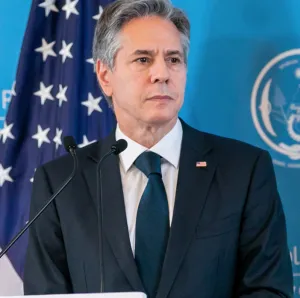
Check out How Former ICTR prosecutor takes on Blinken on Rusesabagina, Genocide
In a thread she shared on her timeline on the microblogging platform Twitter, Mulvaney challenged Blinken and the US establishment for their refusal to recognize what happened in Rwanda as a genocide that was perpetrated against the Tutsi.
Almost 20 years ago we started the Bagosora trial. After 442 days in court and 242 witnesses, we convicted Bagosora et al for committing the Genocide against the Tutsi in Rwanda.
A couple of days ago the US Secretary of State could not say “Genocide Against the Tutsi in Rwanda” it seems it is not correct – How did this happen?” Mulvaney wondered.
Rwanda has previously challenged the deliberate refusal by the two countries to use the internationally-accepted appellation.
Rwanda’s permanent representatives at the United Nations lodged their protests against the two countries while Rwanda’s minister of foreign affairs tweeted last year during the commemoration saying that, “And to those who are struggling to properly name the Genocide against the Tutsi, it is better not to send us any message. We will be okay, as we always have been!”
Mulvaney is not the first one to pin Rusesabagina to the Genocide and Genocidaires. In her book, ‘Intent to Deceive: Denying the Genocide of the Tutsi’ Genocide scholar Linda Melvern, shows how Rusesabagina was never what he seemed.
He knew nothing about the Rwandan judiciary and had a background strongly allied to ‘the extremist Hutu faction’. Rusesabagina made wild and exaggerated claims and his performance in court raised questions about his direct links with the extremist group Hutu Power – today and in 1994.
Barbara Mulvaney, who is also an American, was the lead prosecutor for Col Theoneste Bagosora, the key architect of the 1994 Genocide against the Tutsi.
During his recent visit to Rwanda, Blinken avoided using ‘1994 Genocide against the Tutsi’ be it at the press briefing or during his visit to the Kigali Genocide Memorial.